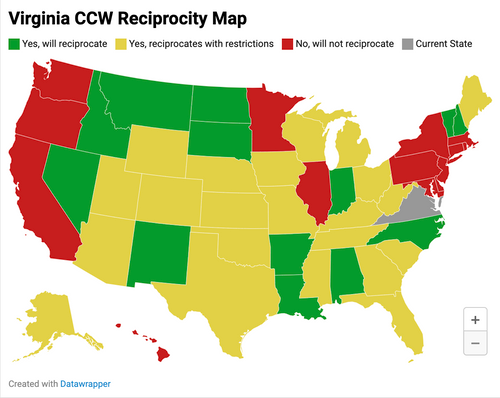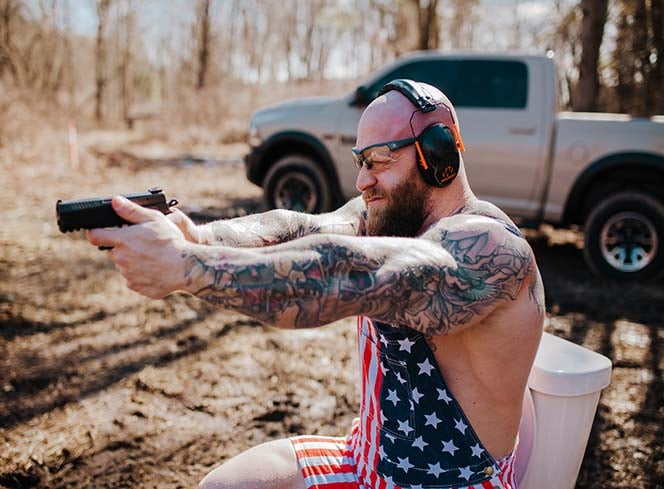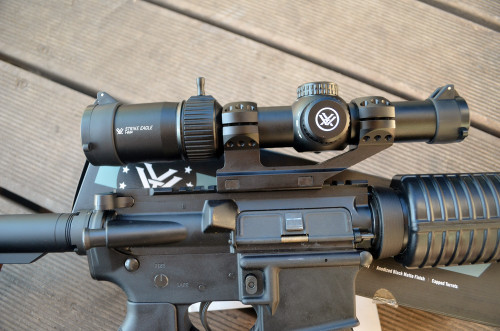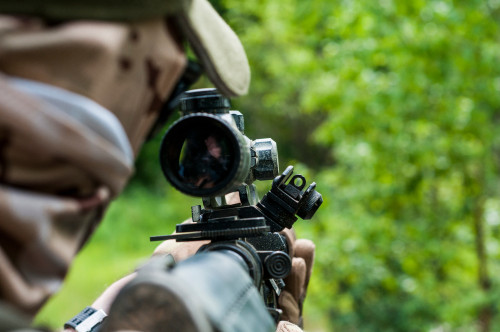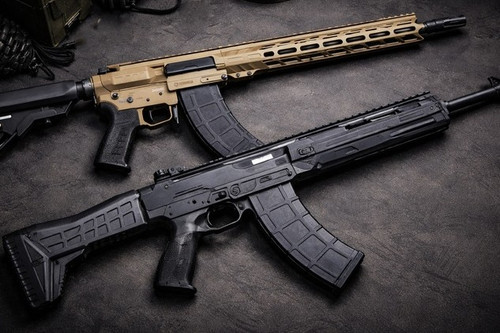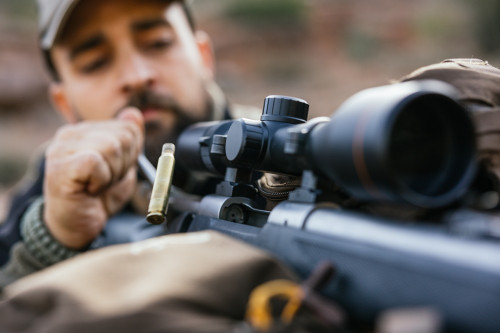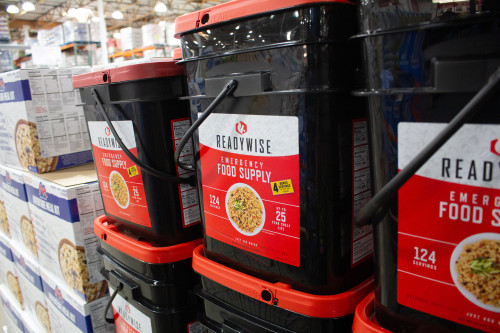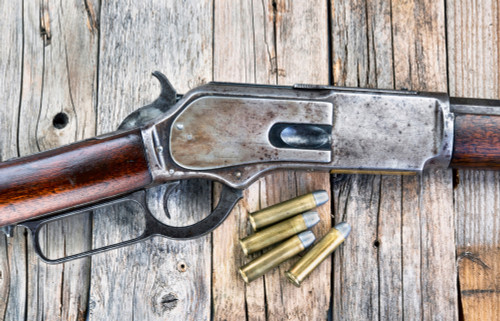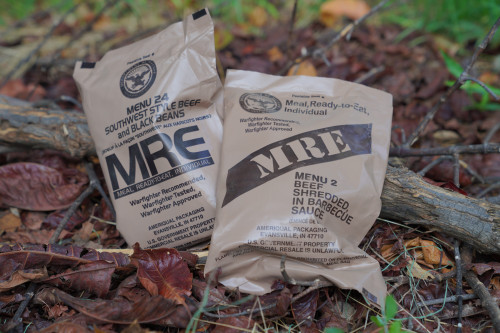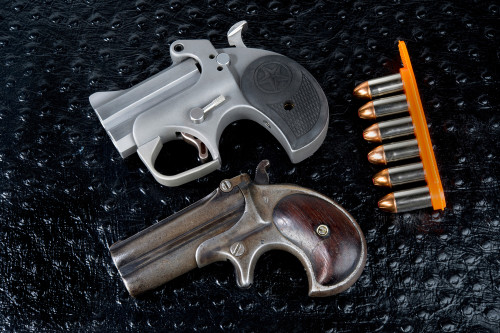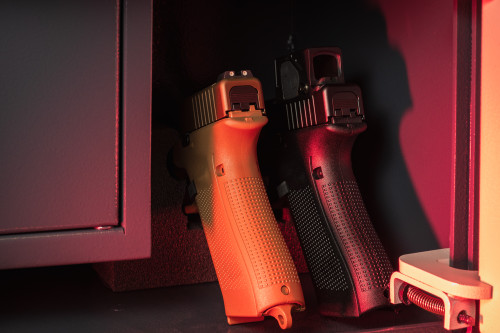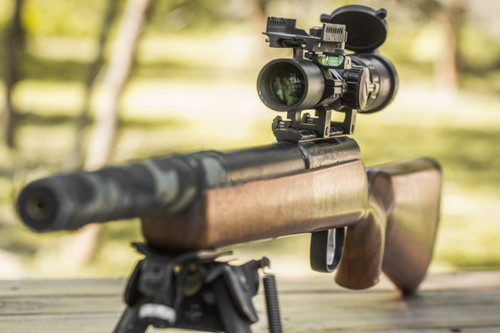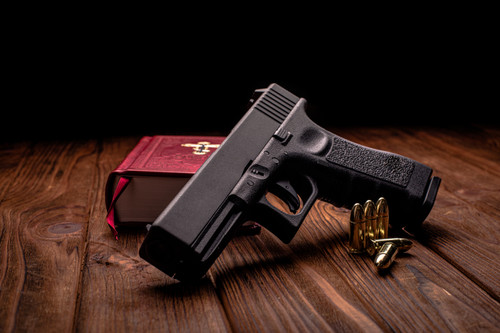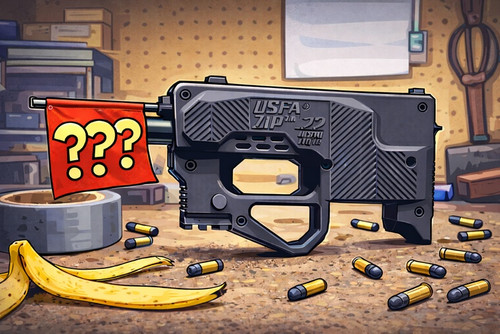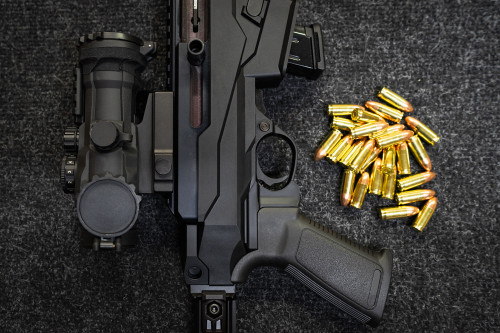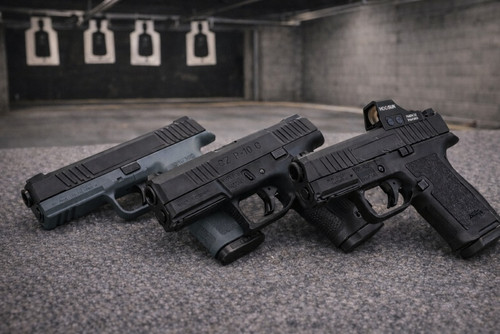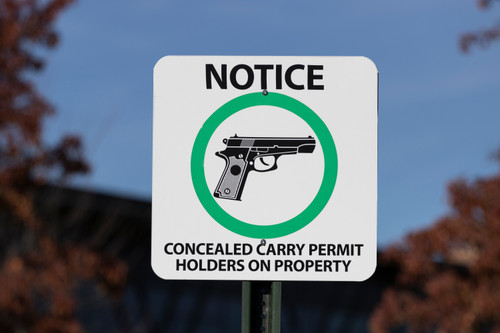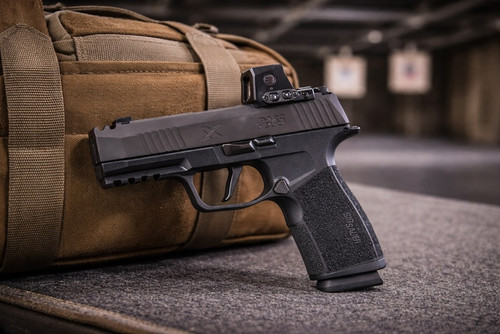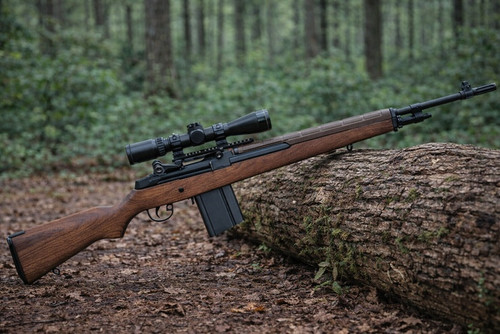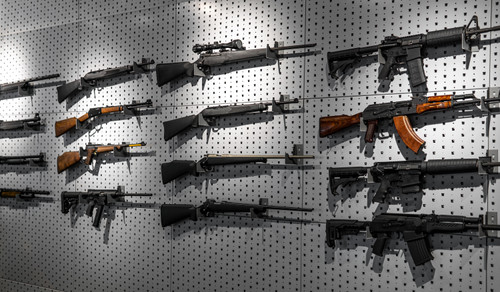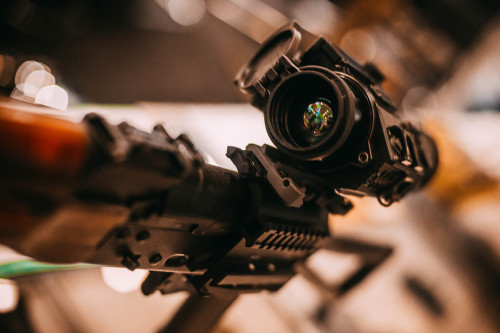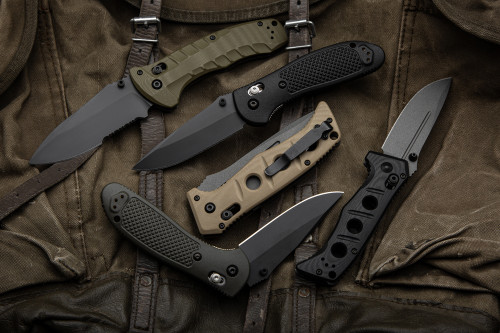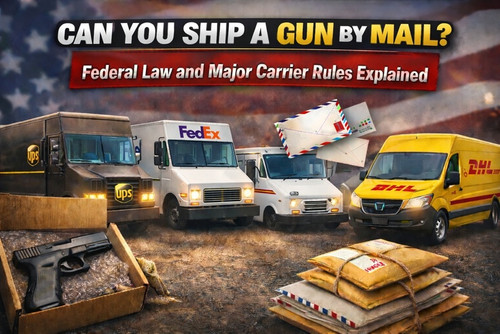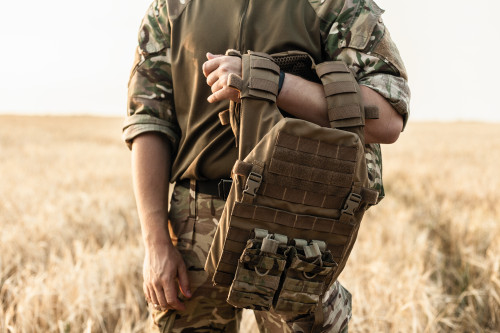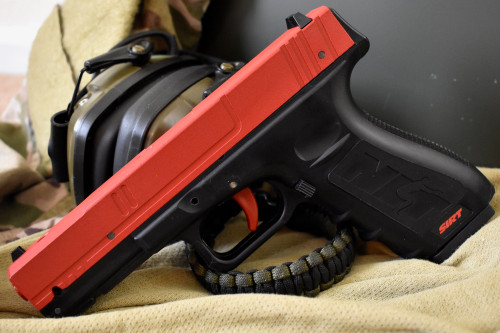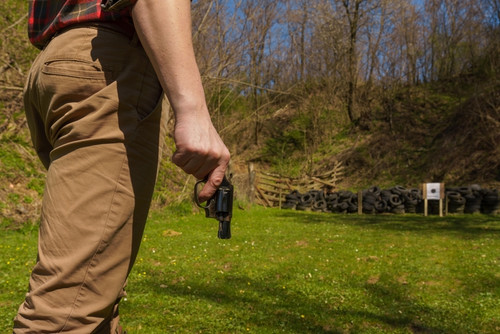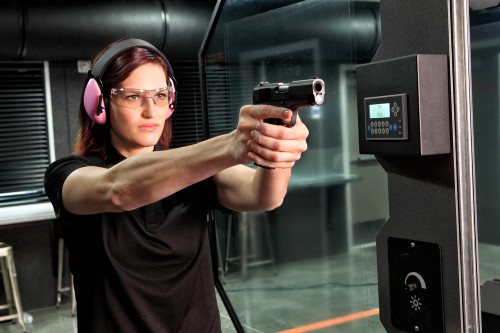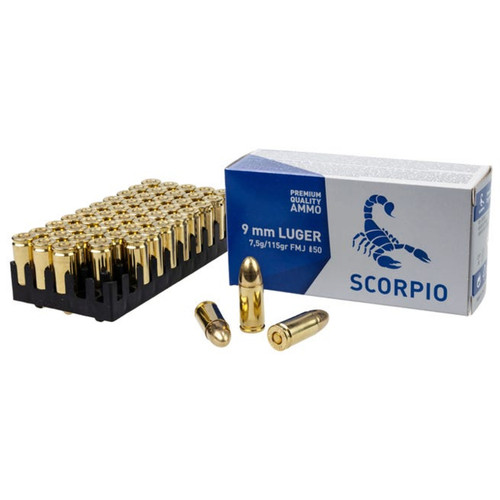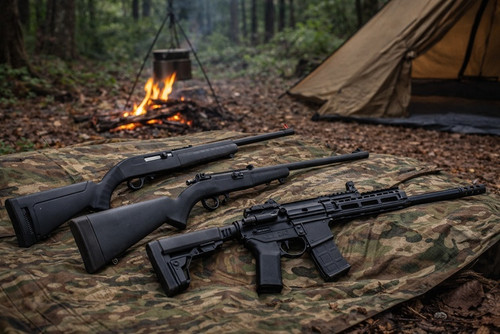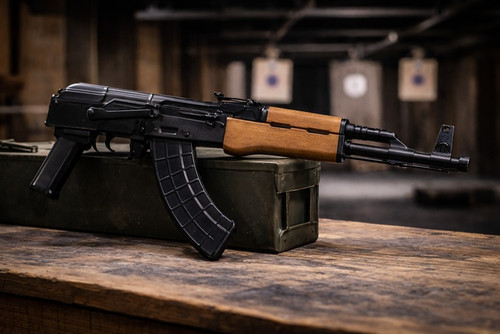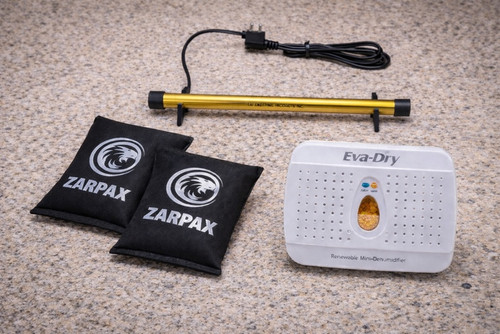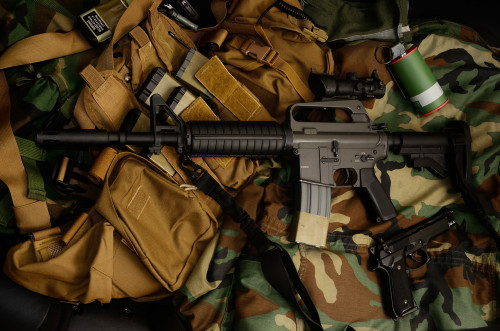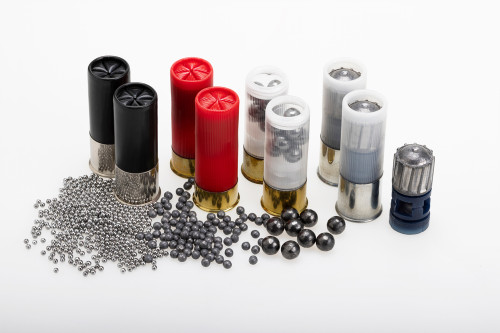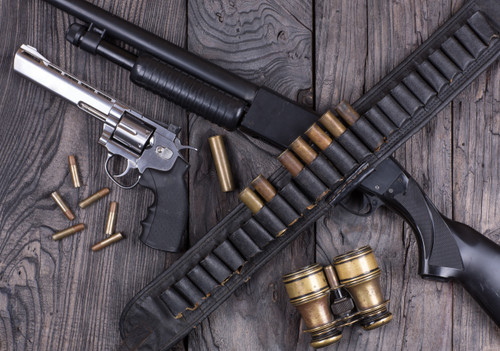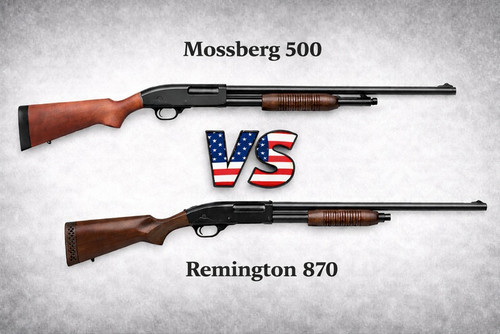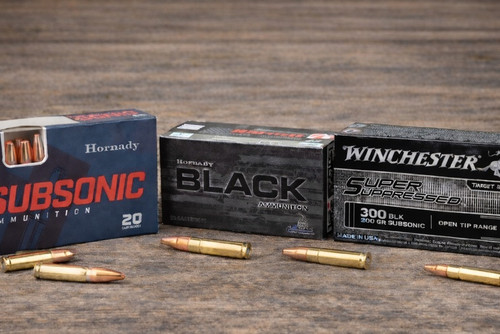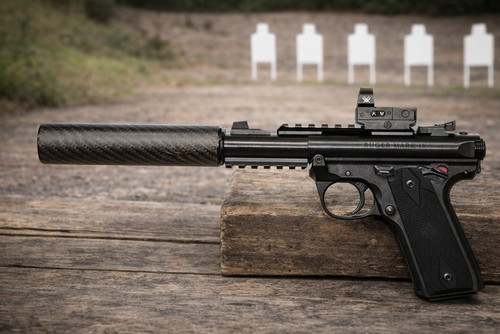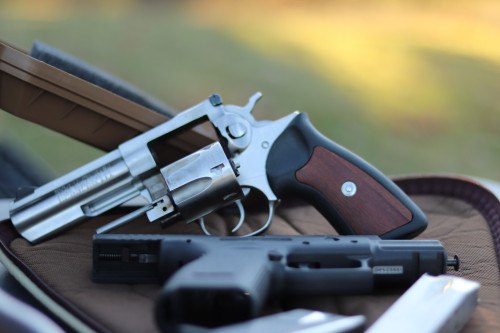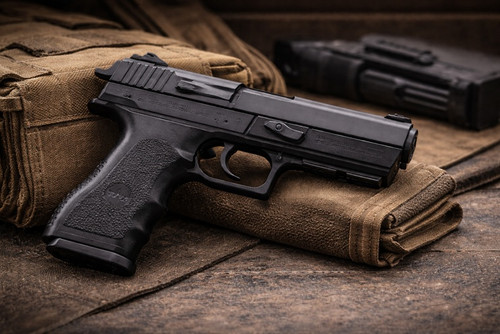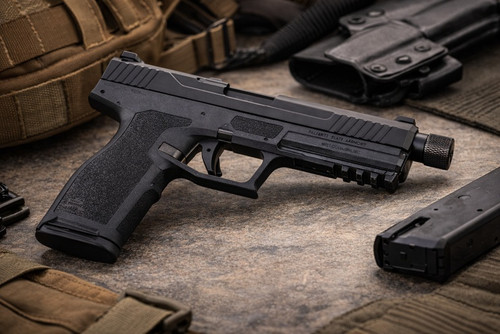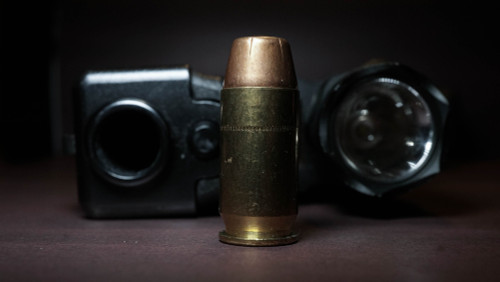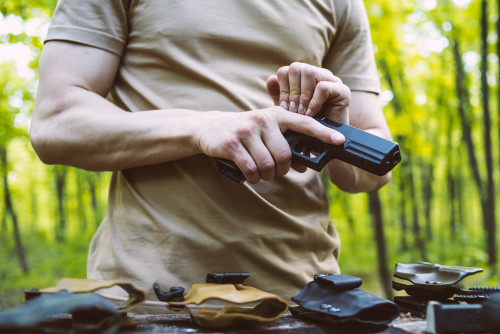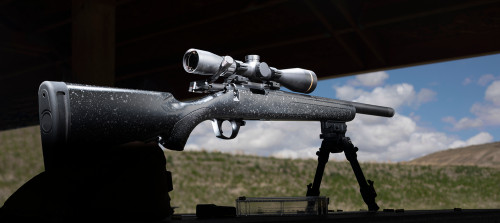Unlike in many other states on the East Coast, the spirit of the Second Amendment is alive and well in the Commonwealth of Virginia. Not only does Virginia recognize concealed carry permits from every other state, but getting a Virginia permit is fairly straightforward — you can be armed and ready in no time.
In this guide, we’ll cover everything you need to know about concealed carry in Virginia including reciprocity with other states, how to get a license, and specific rules regarding the purchase, carry, and use of a firearm in “Old Dominion.”
Legal Disclaimer
This article doesn’t constitute legal advice. We’re communicating informally here to make this information easy to grasp and to avoid getting lost in legal mumbo jumbo. With that said, it’s the legal mumbo jumbo that may decide your fate in court. Be prepared.
We’ll be as accurate as we can, but for clarification, cross-check the information here with actual laws, which we’ve linked throughout the article. If you have additional questions or concerns, we recommend consulting with an attorney experienced in the self-defense laws of Virginia.
1. Quick Stats
- Number of other state permits honored in Virginia: 49
- Number of states that honor Virginia permits: 36
- Percentage of people licensed for concealed carry in Virginia: 8.3%
- Number of issued licenses in Virginia: 718,000
- Minimum age to carry a concealed firearm in Virginia: 21
- Virginia concealed carry license validity: 5 years
2. Virginia Concealed Carry Overview
This section provides an overview of concealed carry laws in Virginia.
Concealed Handgun Permit
Virginia is not a constitutional carry or permitless carry state. To legally carry a concealed firearm, you must qualify for and obtain a Virginia Concealed Handgun Permit (CHP). However, open carry is permitted in Virginia for anyone who can legally possess a firearm, though this is restricted in some areas.
Virginia is a shall-issue state, which means anyone who meets the qualifications can obtain a CHP. You don’t need to convince the government that you have a particular need for a concealed firearm. CHPs are issued by the State Police.
To qualify for a CHP, you must be 21 years old, complete a state-approved firearms training course, and meet certain criminal history requirements. CHPs are issued to residents and non-residents.
Only law enforcement has access to the concealed carry registry. Additionally, your CHP is linked to your driver’s license, so law enforcement will immediately be notified of your concealed carry status during a traffic stop.
Detailed information about obtaining a CHP can be found in section 7 of this article.
VA Code 18.2-308.01 and 18.2-308.02
Preemption
The Virginia government broadly holds preemption rights over firearm laws throughout the state, though there are some exceptions. Local governments can enact ordinances that prohibit where firearms can be stored, carried, and discharged on public property (e.g., government buildings, parks, community centers, etc.).
Usually, these ordinances will be clearly posted, but always make sure to know your area so you have an idea of exactly where the legal lines are drawn.
VA Code 15.2-915 and 15.2-1209
Red Flag Law
Virginia has a red flag law, also called an emergency substantial risk order, which gives lawyers and law enforcement officers the right to petition the court to legally disarm dangerous people for the expressed purpose of preventing imminent catastrophe.
The order prohibits the purchase, possession, and transport of firearms, and requires the subject of the order to turn in their CHP (if they have one). This order can remain in effect for up to six months.
If you’re worried that someone you know is about to do something really stupid with a gun, you must contact law enforcement or an attorney to initiate the red flag process.
VA Code 19.2-152.13
Other Weapons
The Virginia CHP exclusively regulates firearms and doesn't apply to other concealed weapons. However, non-lethal self-defense tools such as chemical sprays, mace, stun guns, and tasers are legal to possess without a permit and can be used for the protection of life and property.
VA Code 18.2-312
Magazine Limits
While Virginia prohibits the public carry of firearms with magazines that can hold more than 20 rounds, this limitation doesn’t apply to CHP holders.
VA Code 18.2-287.4
Ammunition Restrictions
Virginia has no laws restricting ammo.
3. Virginia Concealed Carry Reciprocity
Every state has different rules and licensing procedures for concealed carry. However, some states either fully or partially recognize the concealed carry permits of other states. Here is how Virginia fits into the national concealed carry picture:
State Permits Honored by Virginia
Virginia honors valid concealed carry permits from all other states. If you have a concealed carry permit in your home state (including D.C. and Puerto Rico), you can carry in Virginia. Be sure to always have the permit on your person when you’re carrying.
VA Code 18.2-308.014
States Fully Honoring Virginia CHP
The states below fully honor the Virginia CHP, which means you can carry a concealed firearm in that state without seeking any additional approval. However, you must be aware of and follow the gun laws of whichever state you are in.
- Alabama
- Arkansas
- Idaho
- Indiana
- Louisiana
- Montana
- Nevada
- New Hampshire
- New Mexico
- North Carolina
- North Dakota
- South Dakota
- Vermont
States Partially Honoring Virginia CHP
The states below honor the Virginia CHP, but with some restrictions that vary by state. Be sure to check the conditions of the state you’re traveling to.
- Alaska
- Arizona
- Colorado
- Florida
- Georgia
- Iowa
- Kansas
- Kentucky
- Maine
- Michigan
- Mississippi
- Missouri
- Nebraska
- Ohio
- Oklahoma
- South Carolina
- Tennessee
- Texas
- Utah
- West Virginia
- Wisconsin
- Wyoming
States Not Honoring Virginia CHP
The states below do not honor the Virginia CHP:
- California
- Connecticut
- Delaware
- District of Columbia
- Hawaii
- Illinois
- Maryland
- Massachusetts
- Minnesota
- New Jersey
- New York
- Oregon
- Pennsylvania
- Rhode Island
- Washington
4. Virginia Rules for Buying a Gun
Here is an overview of the rules related to buying a gun in Virginia.
Purchase Permit
Permits are not required for handgun purchases in Virginia.
Background Checks
Background checks are required for all handgun purchases and transfers. As all (official) handgun sales must be completed through a federal firearms licensee (FFL) dealer, the dealer will complete the background check process. CHP holders are not exempt from background checks.
VA Code 18.2-308.2:2 and 18.2-308.2:5
Waiting Period
Mandatory waiting periods are not required for handgun purchases in Virginia.
Registration
Virginia citizens are not required to register handguns.
Minimum Age for Purchase
You must be at least 21 years old to legally purchase a handgun in Virginia.
5. Virginia Rules for Carrying a Gun
This is an overview of rules and laws related to carrying a firearm in Virginia.
Basic Guidelines
Carrying a concealed handgun in Virginia requires a CHP, which you must have at all times when carrying concealed. The CHP is not required for open carry.
In this context, to “carry” a gun means having the gun on your person or readily accessible in something like a briefcase or backpack. This also includes having the gun accessible in your vehicle. If the gun is unloaded and locked in the trunk, you’re not “carrying” it, you’re just “possessing” or “transporting” it.
VA Code 18.2-308.01
Carry Locations
While the CHP broadly gives you the right to carry a concealed handgun, there are always exceptions. Here are a few key locations to be aware of:
Not Permitted
- Schools and associated facilities, except when in a vehicle entering or leaving the premises
- Secure areas of airports
- Courthouses
- Prisons and jails
- Government offices
- Polling facilities
- Areas managed by the Tennessee Valley Authority
- Private property with explicit prohibition (e.g., hotels, parking lots, etc.)
- Any place prohibited by federal law
VA Code 18.2-308.1, 18.2-283.1, 18.2-287.01, and 15.2-915
Permitted
- Restaurants and bars, but you can’t drink while you are carrying
- Wildlife management areas
- State/national parks/forests
- Roadside rest areas
- Churches and places of worship, but only with a “good and sufficient” reason
Otherwise, you’re allowed to carry anywhere else.
VA Code 18.2-283
Duty To Inform Police
You do not have a duty to inform the police that you’re carrying a concealed weapon or have a weapon in your car. However, if they ask if you’re carrying a gun, you can’t lie. You can decline to answer, but lying to the police is a crime.
Regardless, we recommend being polite and cooperative. Being a police officer is a challenging task these days, so be friendly and try to comply within reason. If you have a problem with cops, a traffic stop is the wrong time to deliberate the issue. You will lose.
VA Code 18.2-308.01
Carrying in Vehicle
You must have a CHP to carry a loaded and accessible handgun in your vehicle. However, you can transport a handgun without a CHP as long as the gun is unloaded and secured in a container or compartment (e.g., glove box, trunk, locked case, etc.).
VA Code 18.2-308 and 18.2-308.01
Carrying While Intoxicated
Even with a CHP, you cannot carry a firearm in public while under the influence of drugs or alcohol. Not only is this illegal, it’s also stupid. The purpose of a gun is to keep you and the people around you safe, which you can’t do if you’re high or drunk. If you want to get wasted in public, leave your gun at home and outsource your security to more serious people.
VA Code 18.2-308.012
Minimum Age for Carry
You must be at least 21 years old to carry a concealed handgun. However, people as young as 18 years old can legally open carry in Virginia. People who are 18 can also transport a gun in a vehicle as long as it is unloaded and secured in a container or compartment.
VA Code 18.2-308.02
6. Virginia Rules for Using a Gun
This is an overview of rules and laws related to using a firearm in Virginia.
Use of Deadly Force
Deadly force is a physical force that can reasonably be expected to cause death. If you kick someone in the shin and they die, it isn’t deadly force because it's unreasonable to assume they would die (you’re probably still in trouble, though). Conversely, if you shoot someone and they survive, you still used deadly force because death was the expected outcome.
In Virginia (and pretty much everywhere else), deadly force is reserved for situations where you or someone else is faced with an imminent threat of great bodily harm or death. If the attacker dies as a result of your defense, this is called justifiable homicide.
How do you know? The law uses the reasonable person test, which asks whether a theoretically reasonable person in the same situation would behave as you did. Remember, you’ll have to explain your actions to the police and possibly to a jury. They have to be able to agree that, “Yeah, if I were in that situation, I would have done the same thing.”
Also, you can only use the amount of force necessary to stop the threat. This is where you could do everything right, but then pull that trigger one too many times and cross the line into criminal territory. The line between self-defense and murder is very narrow.
Even if you’re forced to make a split-second decision, you’ll be held accountable for that choice. The keys to legal and effective self-defense are skill development, scenario planning, and comprehensive knowledge of the law — and avoiding bad situations entirely.
Training is the only antidote we have against the mind-bending stress and insanity of gun combat. The better trained you are, the more likely you will be to stop yourself when the threat is neutralized.
Duty To Retreat
In Virginia, you do not have a duty to retreat when faced with violence, and you have a right to stand your ground anywhere you are legally allowed to be. As with many other states, the right to self-defense is not explicitly codified in law. However, years of legal precedent have effectively made Virginia a “stand your ground” state.
But remember, this is not just an excuse to start blasting any time you feel uncomfortable. You must reasonably believe that deadly force was necessary to prevent imminent bodily harm to yourself or others. Forget your ego and only fight when it’s absolutely necessary.
Castle Doctrine
Virginia case law also supports castle doctrine, which is your inherent right to defend yourself against home invaders. However, Virginia castle doctrine is less robust than in other states as you still need reasonable cause to use deadly force. In other words, you can’t just shoot someone who wandered into your house by mistake. It has to be clear they entered with the intent to harm you or someone else in the house.
Castle doctrine doesn’t apply if the “intruder” has a legal right to be on the property. In other words, you can’t tell your roommate or significant other to get lost, and then start blasting away when they try to come back. The person must be attacking you.
Brandishing
It is illegal to brandish a firearm (or anything that looks like a firearm) in an attempt to threaten others or induce fear. Of course, this doesn’t apply in a genuine self-defense situation.
The key point is that guns are not tools of coercion. We’re not police officers. The only legal reason to draw your gun in public is to defend yourself or others. That’s it. There are no other circumstances.
VA Code 18.2-282
A Note on Using Your Gun
Remember, the use of deadly force is the central issue of concealed carry. Everything else we cover here could result in fines, misdemeanors, or maybe felonies in rare cases — not life-ending stakes.
Deadly force is an entirely different level of seriousness. What you do in a split second could be the difference between going home to see your family and spending the rest of your life in prison. It might seem cool to carry a gun, but never forget that pulling the trigger is serious business with the highest possible stakes. Prepare accordingly.
7. How To Get a Virginia CHP
The following is a step-by-step guide for obtaining a CHP in Virginia. Always check the official website of the Virginia State Police for the latest requirements and up-to-date information.
Step 1: Determine Eligibility
First, determine if you’re eligible to obtain a CHP. To be eligible, you must:
- Be at least 21 years old
- Reside in the county where you apply (for residents)
- Be a citizen or permanent legal alien
- Not be dishonorably discharged from the armed forces
- Not be a fugitive from justice
- Not be subject to a protective or restraining order
- Not be addicted to a controlled substance
- Not be convicted of two or more misdemeanors within the last five years
- Not been adjudicated to be legally incompetent or mentally incapacitated
- Not otherwise be prohibited from possessing a firearm
- Demonstrate competency with a handgun (see step 2)
There are no minimum residency time requirements for your current town or the state. Residents and non-residents can apply.
VA Code 18.2-308.02
Step 2: Complete Firearms Training
As with many other states, the firearm training requirements are somewhat vague. You just need to complete a basic handgun course with an approved organization such as the National Rifle Association, the United States Revolver Association, the United States Concealed Carry Association, or any other course the court deems adequate.
Be sure to get a certificate of completion, as you will need to include a copy along with your CHP application.
Step 3: Apply for the CHP
Residents should download and complete this CHP application. You can also get a paper copy from the sheriff’s office or the circuit court. Next, you can either mail the application to the circuit court clerk or deliver it in person. Be sure to include a copy of your firearms training certificate. The fee is $50.
Non-residents should download and complete this application, and then mail it to the Virginia State Police. Along with proof of training, non-residents must also submit a 2x2-inch photograph, a photocopy of a government-issued ID, and a completed fingerprint card for a criminal history check. The fee for non-residents is $100.
Step 4: Wait for Notification
The court has up to 45 days to process your application and send you your CHP. If they fail to do so, you’ll be sent a temporary permit, which expires after 90 days. This process can repeat if they continue to delay a decision.
If approved, your CHP will arrive by mail. The license is valid for five years.
8. Virginia CHP Management
Here’s how to manage your CHP once it’s active:
Renewal
The court or state police will notify you 90 days before your permit expires, and you have up to six months after permit expiration to apply for renewal. After six months, you’ll need to apply for a new permit.
Whether resident or non-resident, submit the same form you used for your initial application. The respective fees are the same as when you first applied. Non-residents need to submit new fingerprints and a new photo.
As with your initial application, you’ll be notified within 45 days of the results.
VA Code 18.2-308.010
Name & Address Change
If your name and address have changed since you were initially approved for a license, you need to contact the Firearms Transaction Center by mail or email. You’ll need this form to complete the process. The fee is $10.
Lost or Stolen Permit
If your license is lost, stolen, or destroyed, contact the sheriff’s office in your county to report the missing license and apply for a replacement. You’ll have to pay a $5 fee.
VA Code 18.2-308.011
9. Virginia Weapons Laws FAQ
Here are some common questions regarding Virginia weapons laws and concealed carry:
Does a CHP exempt you from a background check?
No. All gun sales must be processed by an FFL, which requires a background check. The CHP doesn’t get around this rule.
Is there a waiting period for handgun sales?
No, Virginia does not have a mandatory waiting period.
Can I keep a loaded handgun in my car?
Yes, as long as you have a CHP and are also present in the car. If you leave the gun unattended in the vehicle, you should unload the weapon and store it in the trunk or a locked box out of view.
What’s the minimum age to carry a handgun?
21 years old.
Can I open carry?
Yes. Anyone who can legally possess a gun can open carry in Virginia.
Can I legally carry a knife?
Yes, but it must be open-carried. Pocket knives are the exception to this rule, and must have a blade less than three inches. Otherwise, you are not allowed to conceal any knives or bladed weapons while in public.
Can I carry a concealed handgun while hunting?
Yes, as long as you have a CHP. The key is that you cannot use a handgun for hunting wildlife. You can only use it in cases of self-defense. And if you don’t have a CHP and are open carrying a handgun while hunting, you can temporarily conceal the weapon in inclement weather.
VA Code 18.2-308
Do I need a permit to buy a handgun?
No, purchase permits are not required in Virginia.
Do I need to register my gun?
No, Virginia does not require handgun registration.
Pro Armory: Your Concealed Carry Equipment Supplier
We hope you have a better understanding of the concealed carry situation in Virginia. As you can see, the state is fairly accommodating to citizens who wish to exercise their Second Amendment rights — no excessive paperwork or hoop-jumping required.
At Pro Armory, we believe concealed carry is your right — but only if you do so as a thoughtful, responsible citizen. Stay prepared with the best tools to help you exercise your right to bear arms and defend yourself. We offer ammo for handguns, rifles, and shotguns — plus a variety of tactical accessories to load out your firearms for any situation.
Want to become a better shooter? Pro Armory also offers online firearms training to enhance your proficiency with your concealed carry weapon. Learn shooting tips, tactical maneuvers, and concealed carry best practices from veterans and other shooting experts — all from your own home. Sign up for our newsletter to be notified when training officially launches.



